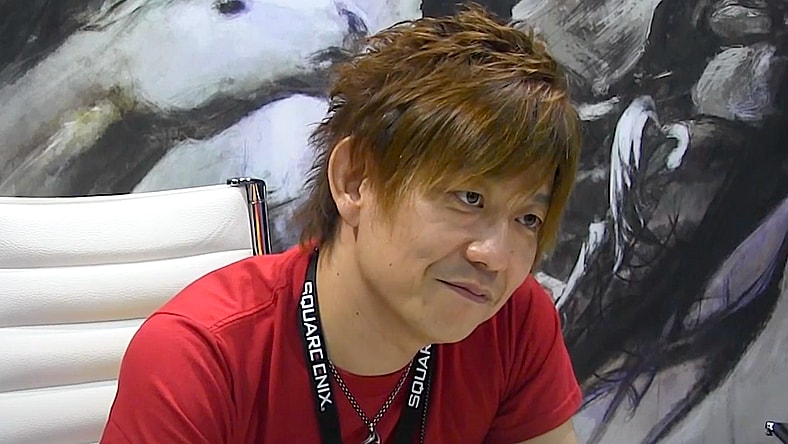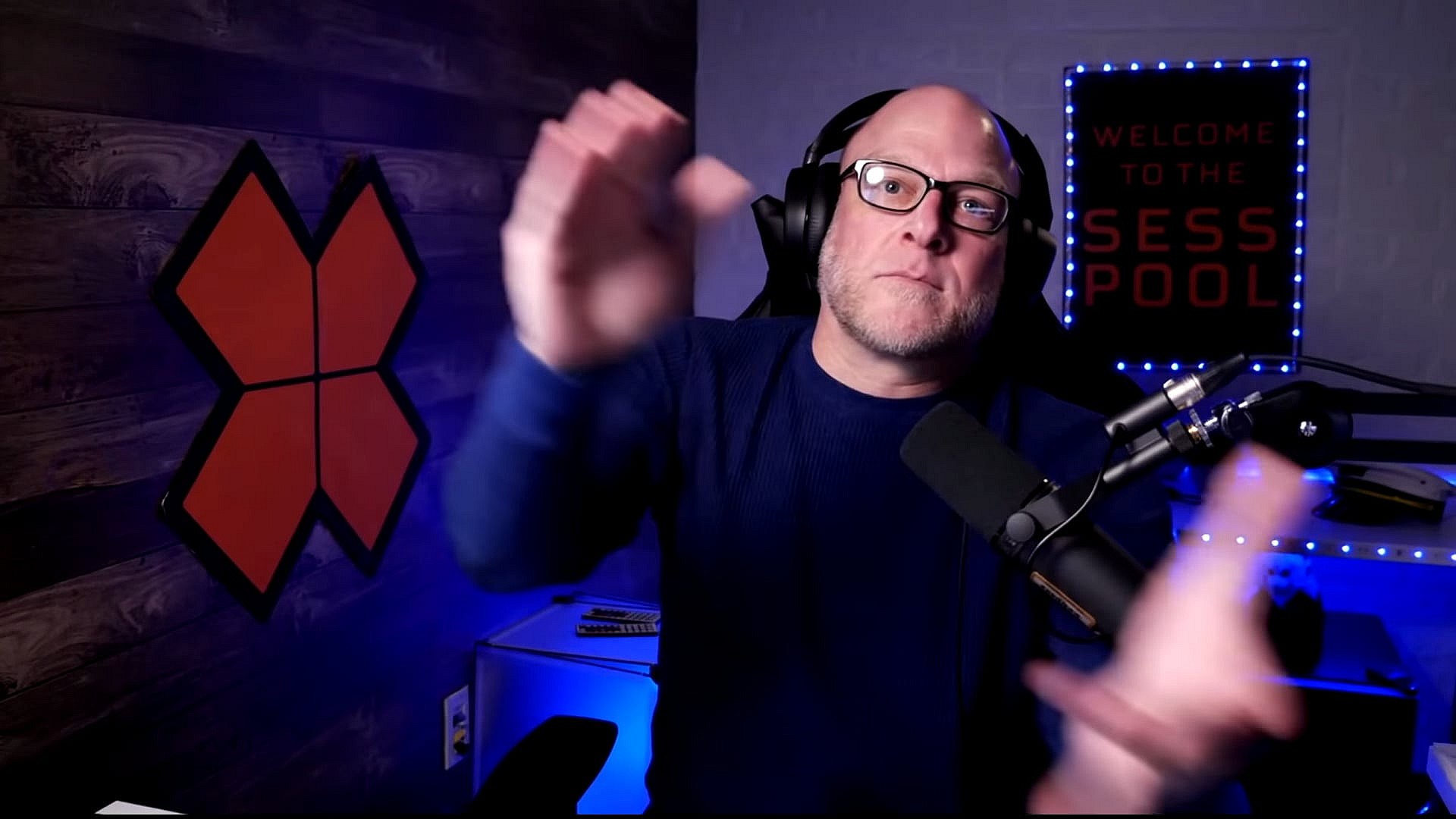‘Final Fantasy XVI’ Producer Naoki Yoshida Rails Against the Use Of The Term ‘JRPG’: “It Wasn’t A Compliment To A Lot Of Developers In Japan”

The internet has recently been in an uproar over the use of the term ‘JRPG’ after an interview between Final Fantasy XVI producer Naoki Yoshida and YouTuber Skill Up began doing the rounds late in February.

RELATED: ‘Final Fantasy XIV’ Modder Purposely Injects Malware Into GShade, Prompting User Backlash
While fans of roleplaying games from Japan use “JRPG” as a term of endearment, Yoshida has opened up about what that term means to many Japanese developers and the effect it had on the way the Japanese approach RPG titles.
“This is going to depend on who you ask but there was a time when this term first appeared 15 years ago, and for us as [Japanese] developers, the first time we heard it, it was like a discriminatory term,” said Yoshida.
He went on, “As though we were being made fun of for creating these games, and so for some developers the term JRPG can be something that will maybe trigger bad feelings because of what it was in the past.”
“It wasn’t a compliment to a lot of developers in Japan. We understand that recently, JRPG has better connotations and it’s being used as a positive but we still remember the time when it was used as a negative.”
Though there may be a distinction between classic Western RPGs and RPG titles from Japan, many developers have felt that this distinction was a way to write off Japanese game developers and their achievements.

Most of this negative attention does appear to come from the 7th generation of consoles when the Xbox 360, PlayStation 3, and Nintendo Wii were competing for market domination. During this time, Japanese RPG titles were no longer the games that defined a console like they once had. No more were gamers looking forward to the next Final Fantasy or Dragon Quest — shifting their attention, instead, to first person shooters such as Halo 3, Call of Duty 4: Modern Warfare, and Gears of War.
The gaming market had moved on, and the Japanese developers felt like they were not only being left behind but also forced to adapt. And why wouldn’t they? Whenever a Japanese game came out that was a little too strange or different, video game media would turn on the developers and ridicule them.

Washington Post writer Gene Park has discussed this at length on his Twitter account. The games media has had somewhat of a reckoning over their past treatment of Japanese titles.
In a response to Giant Bomb’s Jeff Grub, who notes that “The term ‘JRPG’ has steadily increased in use since 2008 and was used before that as well,” sharing a screenshot of a Google Trends search to prove the term has, indeed, been increasingly used since 2008.

Both Park and Grub mention infamous video game designer Philippe Poisson, also known as Phil Fish, who told an unknown Japanese developer “your games just suck,” later clarifying that he meant modern Japanese titles “sucked” in general.
Park replied with a counterpoint, asserting, “as an Asian person i absolutely felt anti asian sentiment throughout the gaming press and industry, and it was happening well before phil fish made his racist comment to a Japanese developers face.”

Park also called out Polygon’s Arthur Gies, declaring, “The cofounder of a gaming news site felt like saying this was ok out loud with no additional clarification and i’m asking if it was ever clarified!”
Gies’ tweet in question read, “since the embargo is up, i don’t have much good to say about vanquish. it’s repetitive, clunky, and irritatingly punitive. very japanese.”

Gene Park points out how Polygon’s Arthur Gies dismissed cult-classic Vanquish as being “very Japanese”. He also followed up with Gies to get clarification on what that meant years later.
“So did you ever explain what you meant by this?” Park asked Gies as he quote tweeted the latter’s original post.

Gies responded giving a better explanation of what he meant, declaring, “On podcasts 12 years ago, yeah? I think it’s very flashy at the expense of fine adjustments, and was indicative of a lot of Japanese shooters at the time in its emphasis on animation priority over player control. Could I have phrased that better then? Definitely.”

“You could’ve phrased it in a way that didn’t sound racist for sure. thanks,” Park simply replied.

Earlier this month, former G4 host Adam Sessler had a public meltdown after being called out on his past anti-Japanese video game rhetoric. Instead of acknowledging his mistakes, Sessler chose to label all of his detractors pointing out his questionable past in regard to Japanese games as “MAGA weirdos.”
“I’m not defensive and I’m also not apologizing to the MAGA weirdos with anime porn in their timeline. Also, maybe tend to your own goddam garden,” said Sessler in response to GameSpot editor Jessica Howard’s tweet questioning the former G4 host’s past comments about JRPGs in his review of Monolith Soft’s Baten Kaitos Origins.

Sessler’s unwillingness to even address his past comments, coupled with his bizarre, unhinged rants over the weekend paint the picture of a deeply troubled individual. He has finished off his rants, similar to how he always does, by reaffirming his hatred for his old fans, gamers, and the games industry as a whole.

At the end of the day, while there was never harm in the use of JRPG by the gaming community, much of what Yoshida spoke about in his discussion over the use of the term can be pointed at the games media and their willingness to dismiss Japanese games largely before even trying them.
This mentality may have led companies like Capcom to try and create “Western” versions of many of their fan-favorite IPs such as Lost Planet 3, Bionic Commando, and, of course, DmC: Devil May Cry.

In the minds of Japanese RPG fans, the term may be used to refer to a specific style of RPG gameplay, presentation, storytelling, and overall feel. Games like Final Fantasy 7, Tactics Ogre, Xenoblade Chronicles 2, or Lost Odyssey may not be identical, but they speak to a particular RPG style mastered by Japanese developers.
We can only hope that Naoki Yoshida not only is aware of that, but also knows that players love Japan for their work and contribution to the RPG genre over the years.
